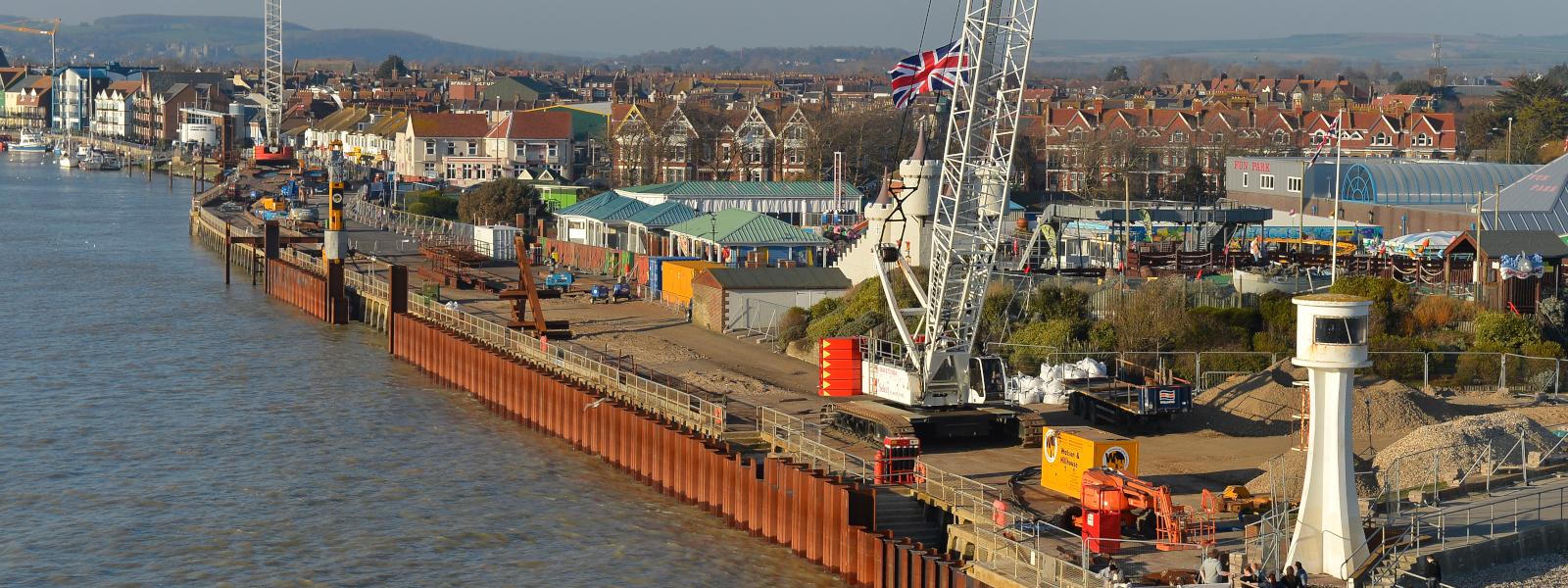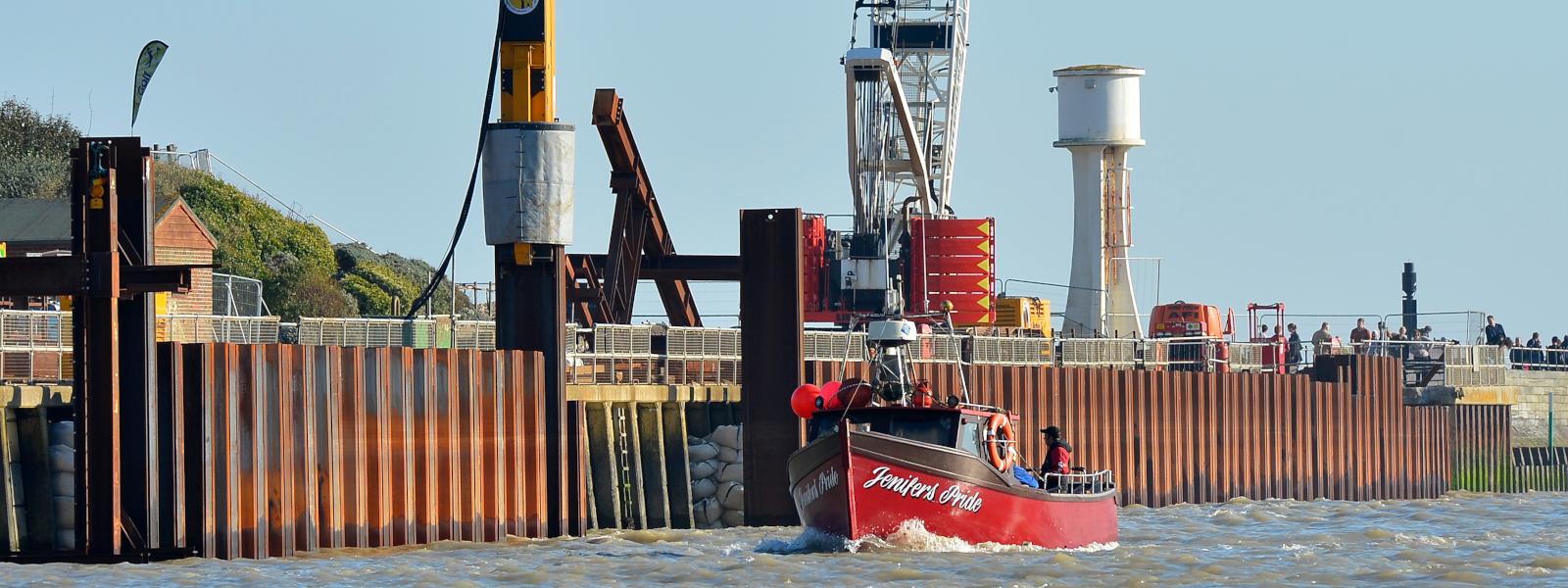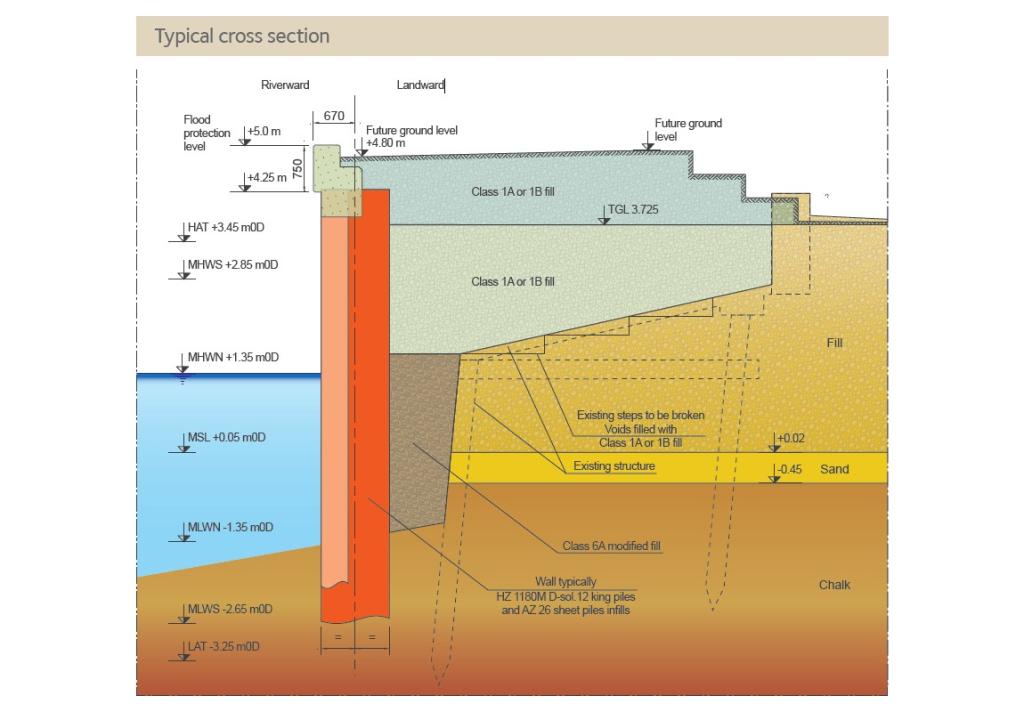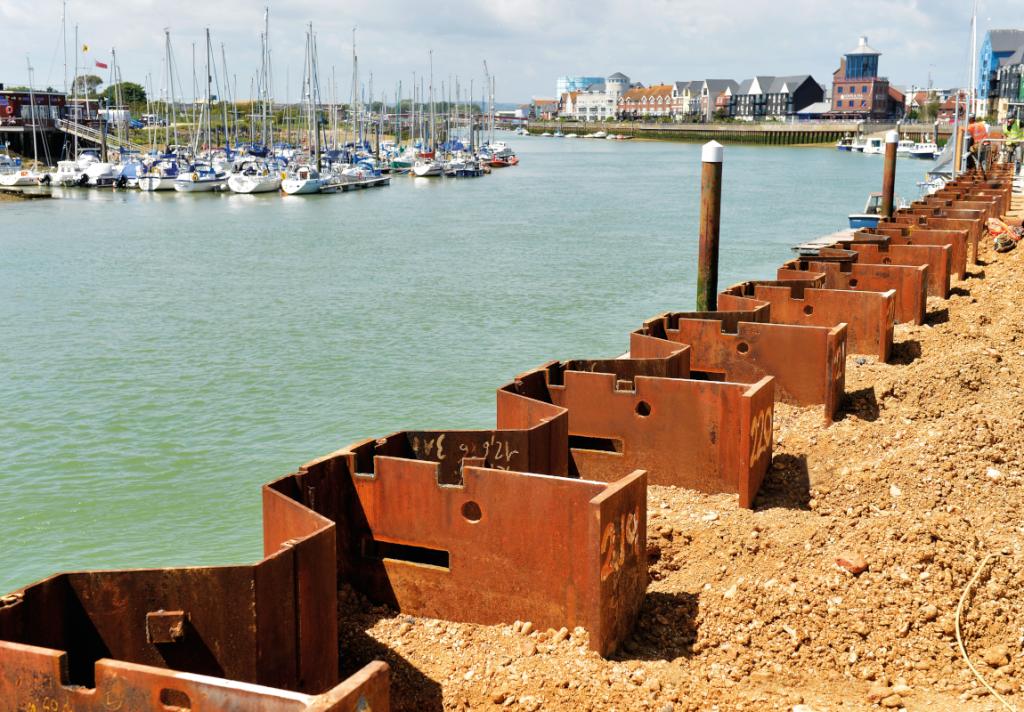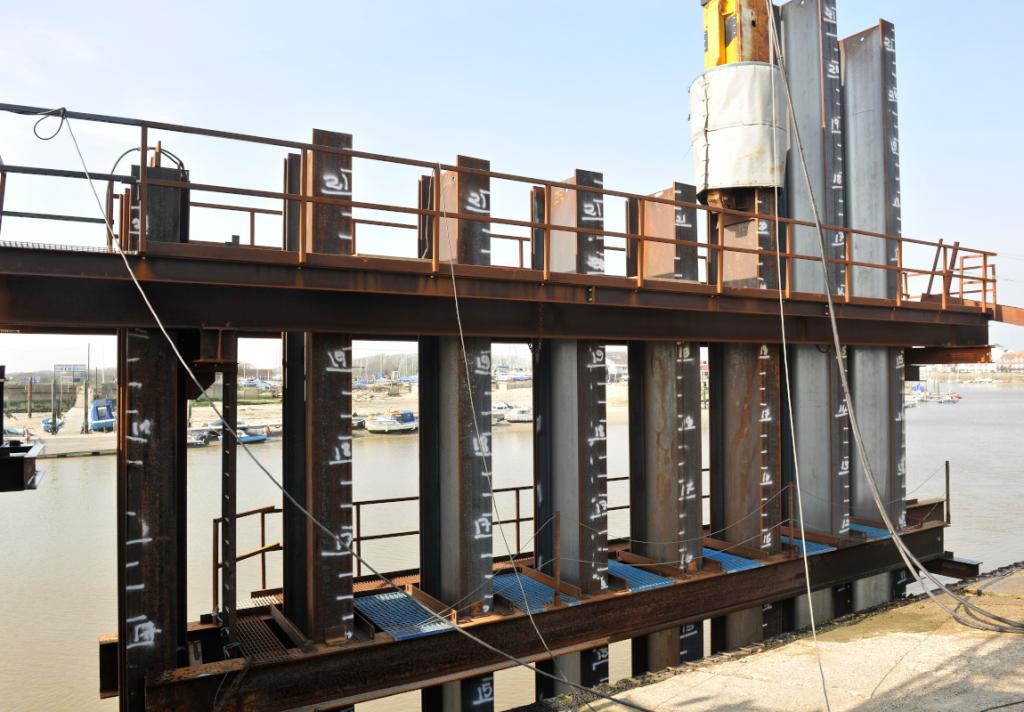Littlehampton Tidal Flood Defences, UK | 2014
The Comprehensive Project for Protecting Littlehampton Against Predicted Sea Level Rise in the UK
Working in partnership with Arun District Council, West Sussex Council and Littlehampton Harbour Board, the Environment Agency is improving the tidal flood defences along the East Bank of the River Arun in Littlehampton, on the South Coast of England. The work is being carried out by VolkerStevin and CH2M Hill and is budgeted at £14.1million.
Completed at the end of 2014, the scheme protects 2,000 residential properties and businesses against 75 years of predicted sea level rise as well as enhancing the riverside walkway between the town and the beach.
Download
 English
English
 English (USA)
English (USA)
